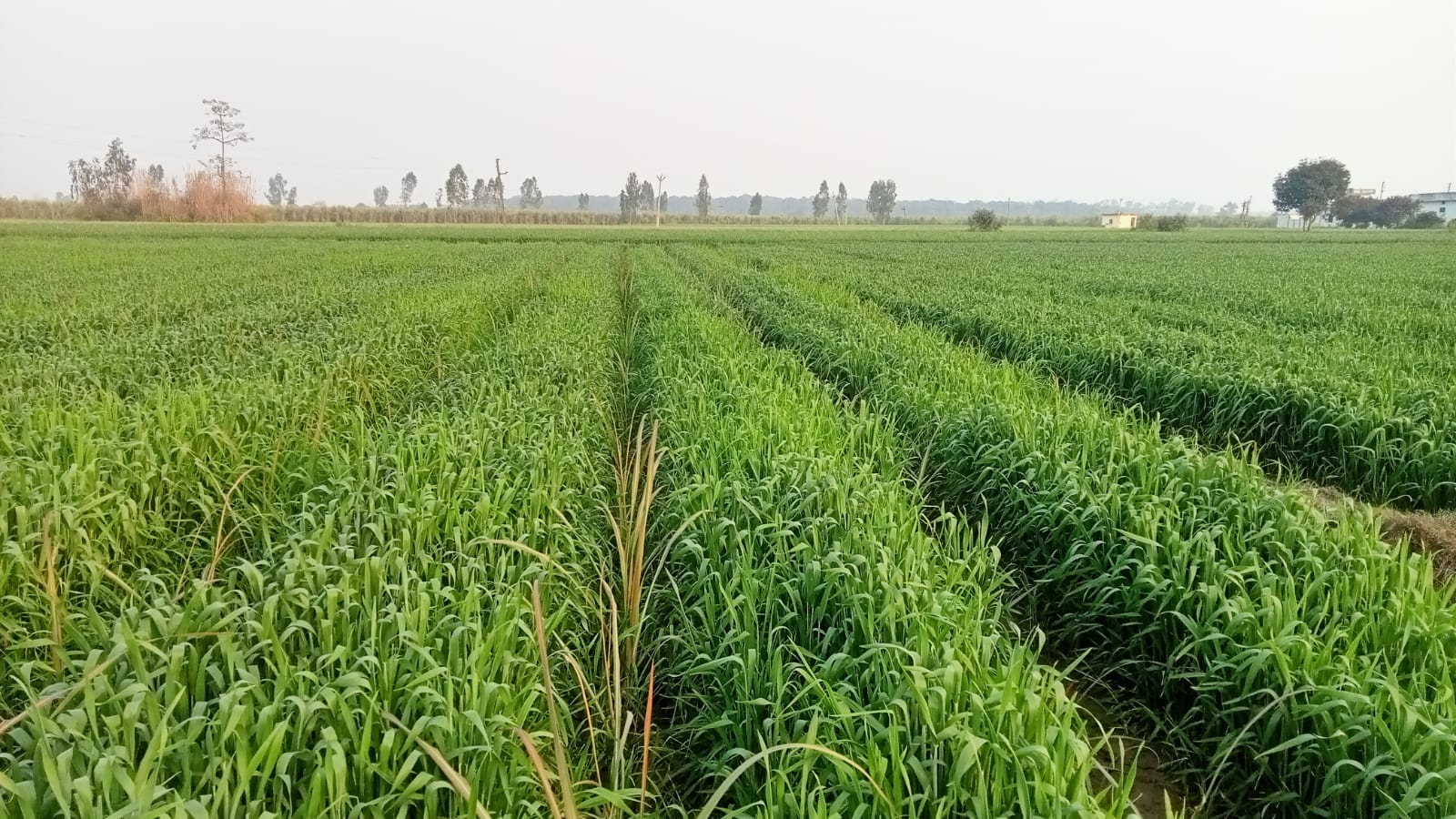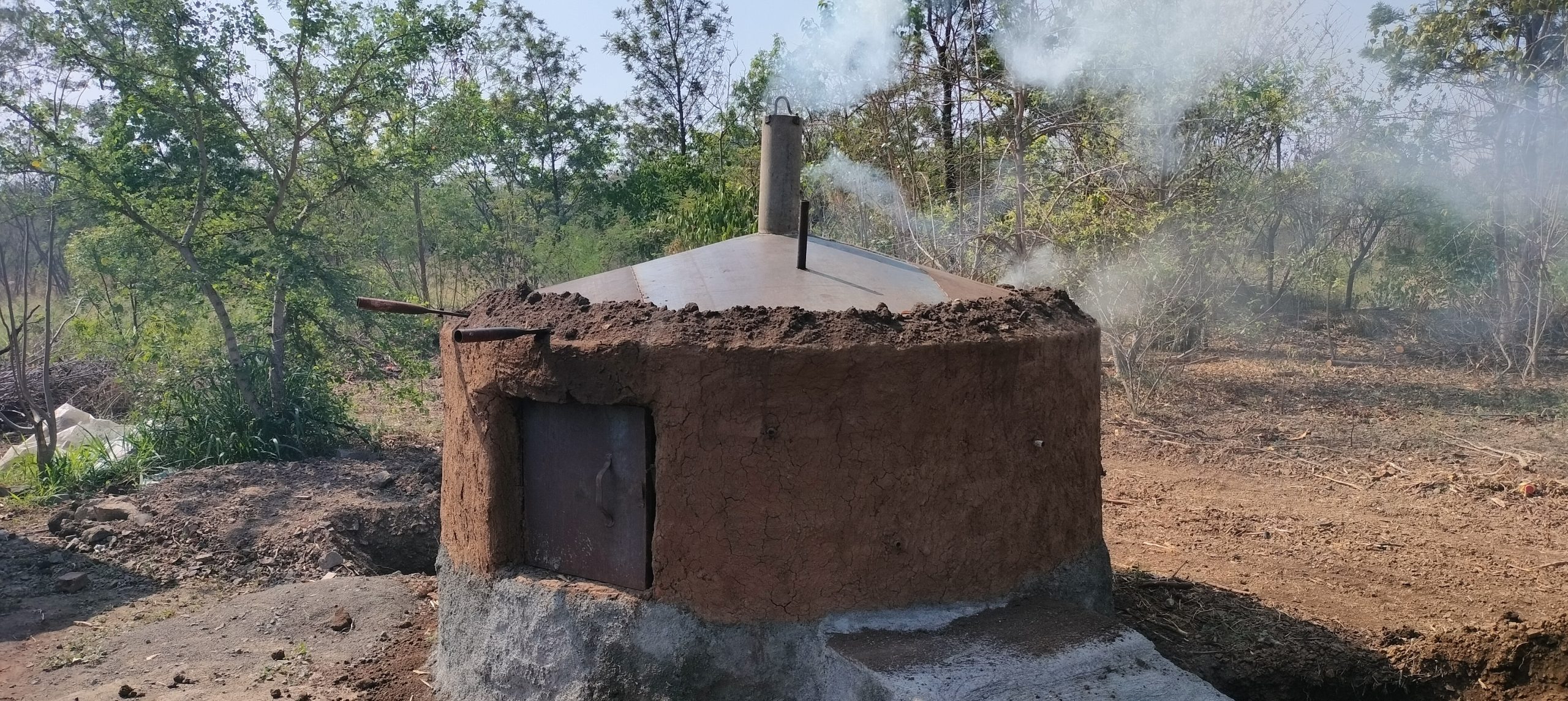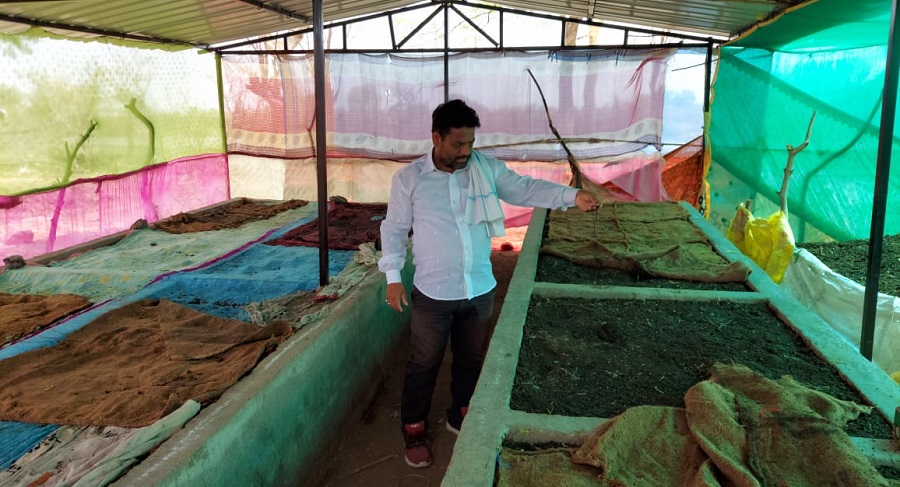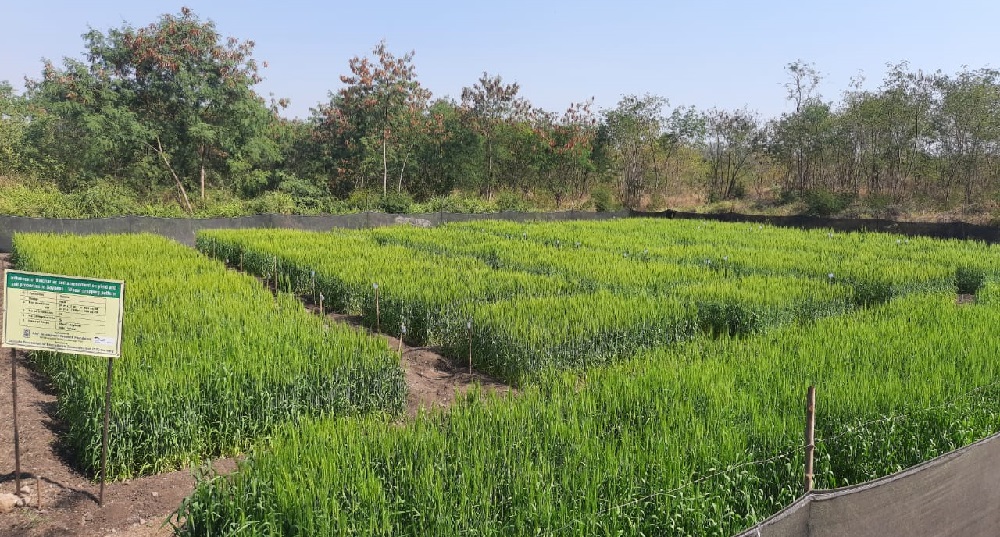
Soil is vital to human life as it impacts major ecosystem services such as food, water quality, groundwater, stream flow and soil erosion. Soil plays a very important role in supplying nutrients and favourable physicochemical conditions to plant growth, promoting and sustaining crop production, providing habitat for soil organisms, reducing environmental pollution, resisting degradation and maintaining or improving human and animal health. The major challenges impacting the soil ecosystem are rainfed farming, high soil erosion and climate risks, and lack of understanding about soil health and low crop yields. Land degradation worldwide is considered to be the major reason for low productivity. The current agricultural practices and climate challenges are causing soil erosion faster than the natural process of replenishment of soils. Estimates indicate that nearly 50 percent of the irrigated land in arid and semi-arid regions have some degree of salinization. As per Indian Council of Agricultural Research (ICAR) reports, the area under problem soils has increased from 220 lakh hectares (2005) to 243 lakh hectares (2010). This indicates that there is scope for improving the health of problem soils in India and sustaining it by creating awareness, promoting regenerative practices, and monitoring for ensuring healthy and secure food and water, carbon sequestration, a healthy environment, and an ecosystem. Sustainable soil health management contributes to Sustainable Development Goals 2, 3 6, 13, and 15.
Soil Organic Carbon (SOC) is an important soil health indicator for its contribution to food production, climate change adaptation and mitigation. SOC can be lost as CO2 or CH4 can be emitted back into the atmosphere as eroded soil material or dissolved organic carbon washed into rivers and oceans.
Why is soil health important?
SOC management worldwide plays an important role in voluntary carbon markets as it is linked with carbon stocks. The turnover which may be in a few months, years, or for an even longer duration, fetches carbon credits to farmers. The factors affecting SOC are climate- extreme events like drought, flood and rise in temperature, land use, vegetation, Hydrology (Water content) and Soil texture.
Practices to convert soil into net carbon sinks:
- Soil conservation measures such as contour bunds, vegetation/plantation/grass development on bunds, silvopasture, agroforestry, afforestation and forest conservation.
- Ensure proper drainage conditions in waterlogged soils, particularly in wetlands and rice fields which are the largest sources of methane emissions.
- Application of water in required quantity as well as quality.
- Integration of organic fertilizer and manure
- Use of vermicompost and biochar produced from unused crop residues and green manuring.
- Cover crops, crop rotation, and crop diversification.
- Integrated Pest Management.
- Supply balance plant nutrients based on soil tests and nutrient analysis.
Rambhau Wagh, a farmer from Parkhed village near Khamgaon, Buldhana district of Maharashtra, owns 1.2 ha land. He has always been encountering low productivity and high production cost. On realising the importance of healthy soils, he took up vermicompost production and sold the surplus to nearby farmers.
He established six beds of 3 x 1 x 0.75 m size to produce 0.25 tons/bed/cycle which is now fetching him an additional income of INR 3500 per cycle.
Jyotiben Khatariya from Ambapur village in Gandhidham district of Gujarat was unable to cultivate her 5 acres of land due to high salinity. After observing the effect of subsurface drainage on others’ fields she replicated it on her land and was able to fetch a good yield from cotton and mustard crops.

Burning of unused crop residue, a common practice among farmers in India, contributes to carbon emission. To address this issue, a Farmer Producer Organisation (FPO) established a biochar production unit which enabled farmers to sell their waste biomass to the FPO and purchase biochar to apply it on their fields. The FPO was able to convert 100 tons of crop residues into 25 tons of biochar last year thereby contributing to circular economy.

Likewise, the farmers in the Belikere watershed have a practice of using crop residues to improve the soil fertility and residue as mulch.

Thus, farmers not only contribute to Land Degradation Neutrality but also ensure food security through suitable climate change adaption and mitigation strategies.
How can farmers be benefitted?
Selling carbon credits by adopting regenerative agriculture for carbon sequestration is now an opportunity for Indian farmers. Farmers can become carbon credit owners by managing soil health and use renewable energy for irrigation and home consumption.
- Carbon Credit:One carbon credit certifies that one metric ton of carbon dioxide is removed from the atmosphere.
- Carbon Markets aimat reduction in greenhouse gas emissions enabling the trading of emission units (carbon credits), which are certificates representing emission reductions.
- Carbon Offsetting: Upfront support to farmers is helpful for claiming credits.
- Benefits: The direct benefit to farmers is cash-based incentives for the carbon sequestered on their lands. On sequestering carbon equivalent to one carbon credit, farmers can earn approximately INR 800-1200 at current market prices which are likely to fetch a better price of INR 3,000-4000 in the near future. There is potential to sequester one to four carbon credits per ha through the use of regenerative practices. The indirect benefit is the improvement in soil health, increased water-holding capacity, lower soil density and increased water.
- On boarding: As individual farmer registration is not easy, farmers can be on board through farmer producer organisations or non-profits or commercial entities that provide related services.
- Verification and Payments: Once the projects are listed, third-party agencies such as The Gold Standard, Climate Action Reserve, American Carbon Registry, Verra, SCS Global Services etc. verify the After verification and approval, credits are sold in markets and the incentives are distributed to the FPO as well as to the farmers.

Mr. Ravi Kote
Chief Thematic Programme Executive
Natural Resources Management & Climate Action
BAIF Development Research Foundation

Very informative blog, and BAIF doing really great service.